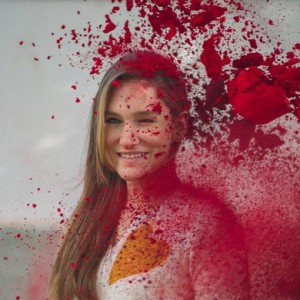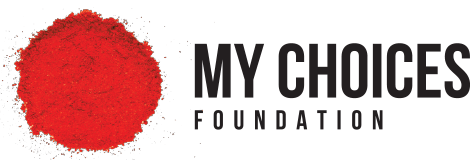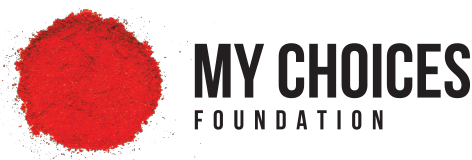- CATEGORY: OPERATION PEACEMAKER
VIOLENCE AGAINST WOMEN IS IN EVERYONE’S BACKYARD. LET’S JOIN TOGETHER TO ELIMINATE IT
While violence against women and girls is endemic in India, it touches us all, is in our backyard – irrespective of where we live, our socioeconomic background, our educational achievements.
My parents are American, but I was born and grew up in India. India is home, and I love this country. As a woman living in India, however, I’m acutely aware of the gender issues that prevail in this country. I’ve experienced it. My closest friends have experienced it. Too often, women are perceived as being owned by their father, brother or husband; in some households, this means that they’re the last member of a household to be served food and in others, it means that parents only invest in the education of sons. At least 50 per cent of men believe they have the right to be violent towards women. What’s more, many girls are taught from an early age they have no value, they exist to serve men and the family. They are groomed to believe men have the power and control. They’re taught to accept their lot in life, believing it’s their fate – whatever happens, just accept it quietly. They believe that this is the role of “good” women.
While violence against women and girls is endemic in India, it touches us all, is in our backyard – irrespective of where we live, our socioeconomic background, our educational achievements. It’s a universal issue, close to home, and we all have an obligation to eliminate it. That’s why the United Nations wants the world to unite by standing up against gender-based violence on the International Day for the Elimination of Violence against Women on 25 November and during the following 16 days of activism.
The United Nations is encouraging us all to piggyback off its global campaign, make the day our own in a way that’s meaningful to each of us. That’s where the strength of the day and the campaign lies – it’s catchy, it’s an issue that unites us all. It demands that we come together and get involved. Collectively as a global community, we must wake up and solve this issue.
Domestic violence makes it difficult for women to lift themselves out of poverty in India. It stops girls from going to school to receive the education they need to break the cycle of poverty and it prevents women from working to earn a living to provide for their families. Eliminating the violence that impacts 1 in 2 women In India is necessary for them to be able to make the journey out of poverty. A world free of poverty will not be realised until we have a world free from violence.
One of the first ladies I interviewed when I joined My Choices, Shravani, was from a family living in poverty. Shravani has three sisters and no brothers, the two older sisters have an intellectual disability, which meant they weren’t eligible for marriage and Shravani herself has a twisted foot after recovering from polio. As a woman from this type of disadvantaged family, Shravani thought she’d be very lucky to get married and that’s what her family thought as well. So, when a man came and asked for her hand in marriage, her dad jumped at the opportunity and cried: “This is our luckiest day.”
On the first day of her marriage, Shravani’s husband beat her and the daily physical and emotional abuse continued for nine years. She got to the point where she couldn’t bear to live anymore, bought rat poison, but didn’t take it because she worried about who would take care of her two children if she was gone. Then one day, Shravani met a PeaceMaker from My Choices.
“Before you take any action come and have a conversation with us,” said the PeaceMaker, who also worked as a hairdresser so that she could easily come into contact with women.
So, Shravani met with the PeaceMaker. It took one conversation with her for Shravani to do a 180-degree turnaround. She’d never been told that she was valuable. It only took one session of validation where she was told that domestic abuse is not inevitable, doesn’t have to be – that being a woman didn’t make her destined to be abused. She told the PeaceMaker she would go home and deal with it. Shravani went home and confronted her husband that night.
“No more,” said Shravani to her husband. “That’s it. You’re never going to raise a hand on me again. You can’t hit me anymore. I’ll report you to the police if you hit me. If I go missing, they’ll go looking for me. The PeaceMakers have my back. They’re looking out for me.”
He threatened to leave and went to his sister’s house, but she wouldn’t let him stay with her because she knew about his abuse. He felt so dejected, he went to the railway station, laid his head on the track then phoned Shravani.
“My head’s on the track,” he said. “Can you hear the train coming? I’m going to kill myself if you don’t stop this nonsense. If you keep standing up to me.”
“Thank you very much for nine years of marriage,” replied Shravani. “I thank God we’ve had two beautiful children, but I have nothing else to say to you,” hanging up on him.
Her husband returned home defeated, feeling he truly had no choice but to listen to Shravani, and begin being a different kind of husband and father. Their lives have never been the same.
Shravani’s story is similar to the stories of millions of women in India. At My Choices, we create a community for women. We empower women with knowledge that they are valuable, deserve respect, that violence and abuse are unacceptable. We counsel the whole family and help men understand that masculinity does not depend on having all the power and control, that they should share it with women. We empower women to change the balance of power and control in their family, give them the confidence to take action. In this way, through the elimination of violence against women, we hope women will go on to build livelihoods and break the cycle of poverty in which their families have been trapped for generations.
This article was first published in Opportunity International Blog followed by SIGHT magazine.






